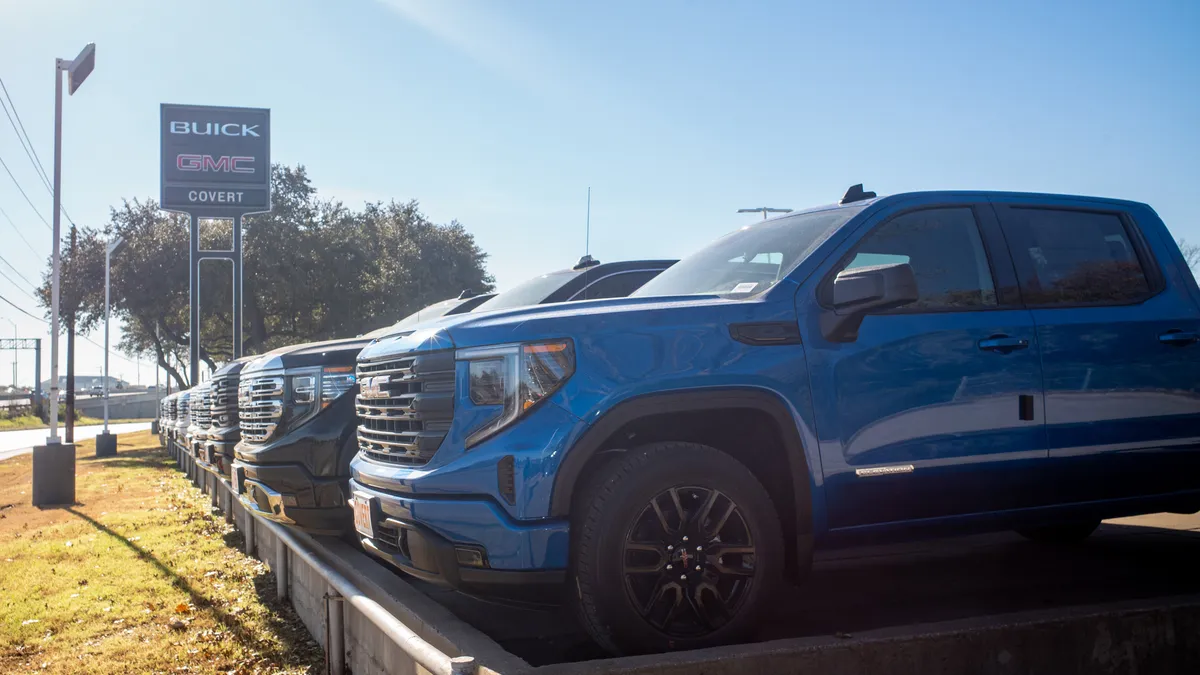General Motors collected and sold customer data from more than 14 million vehicles, which helped third-party companies score drivers and sell the information to auto insurers, according to a lawsuit filed by Texas that seeks to end the practice.
GM and its OnStar LLC subsidiary collected and sold driving data from more than 14 million vehicles and the data of more than 1.8 million Texas drivers, according to the lawsuit, filed Tuesday by Texas Attorney General Ken Paxton in a state court near Houston.
The data were used by third-party companies to calculate a customer “driving score” based on factors the automaker had devised. Factors considered “bad” include late-night driving, driver and passenger seat-belt status, instances of sharp turns, hard braking, hard acceleration and driving over 80 miles per hour, according to the lawsuit.
GM’s agreements required companies purchasing the data to license access to their telematics data to auto insurers, which then used the scores to inform premiums or to drop coverage, Texas alleges.
The company did not inform customers it would sell any of their data or disclose it had contracts allowing third-party companies to resell driving scores to insurers, the lawsuit says.
“Millions of American drivers wanted to buy a car, not a comprehensive surveillance system that unlawfully records information about every drive they take and sells their data to any company willing to pay for it,” Paxton said in a news release announcing the suit.
The company is reviewing the complaint and had held discussions with the Texas AG’s office, a GM spokeswoman said Wednesday in a statement to Legal Dive. “We share the desire to protect consumers' privacy," GM said in its statement.
The collection and use of detailed data on newer vehicles, from the array of sophisticated sensors and communications equipment that they feature, has also drawn federal interest.
The issue of auto telematics data also raises legal questions for other industries in which any connected device — from appliances to televisions to farming equipment — generates data that is commercially useful to third parties.
Last month, two Senate Democrats, Oregon’s Ron Wyden and Edward Markey of Massachusetts, asked the Federal Trade Commission to investigate automakers’ disclosure to consumers about how they sell vehicle usage information to third-party data brokers.
“Companies should not be selling Americans’ data without their consent, period,” Wyden and Markey wrote on July 26 to FTC Chair Lina Khan. “But it is particularly insulting for automakers that are selling cars for tens of thousands of dollars to then squeeze out a few additional pennies of profit with consumers’ private data.”
The Texas AG began investigating automakers’ collection and use of customer data in June. The office did not respond to a question from Legal Dive about whether it is considering other defendants in the case or if it found GM’s practices with customer driving data to be unique.
GM’s data sales began in 2015, the same year GM began using an array of hardware and software products in nearly all of its vehicles, according to the suit. These products can detect and transmit data such as seat-belt use, driving speed and engine running time.
The first data deal was in Oct. 2015, when GM entered into a contract with Verisk Analytics, which formulated driving scores based on the driving data, according to the suit, followed by a similar deal with UK-based Wejo Ltd in Dec. 2018.
The data sold to Wejo included customers’ “radio listening data” beginning in late 2022, according to the lawsuit. In early 2019, GM acquired a 35% stake in Wejo, which filed for bankruptcy in May 2023.
New Jersey-based Verisk signed similar data-sharing deals with Honda Motor and Hyundai, the South Korean automaker in 2017 and 2018, respectively.
A Verisk spokesman did not respond to a message seeking comment.
GM also signed data deals with LexisNexis Risk Solutions in Aug. 2019 and with Jacobs Engineering Group in Jan. 2024, according to the Texas lawsuit.
The suit accuses GM of violating the Texas Deceptive Trade Practices Act by misrepresenting its products and its use and sale of driving data. Texas accuses the company of “deceptive techniques” to enroll customers in its OnStar and other data services.
Editors note: Updates to add General Motors’ comment.



















